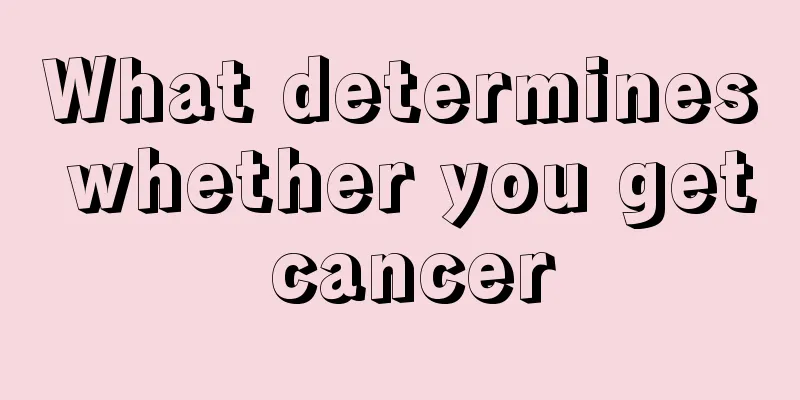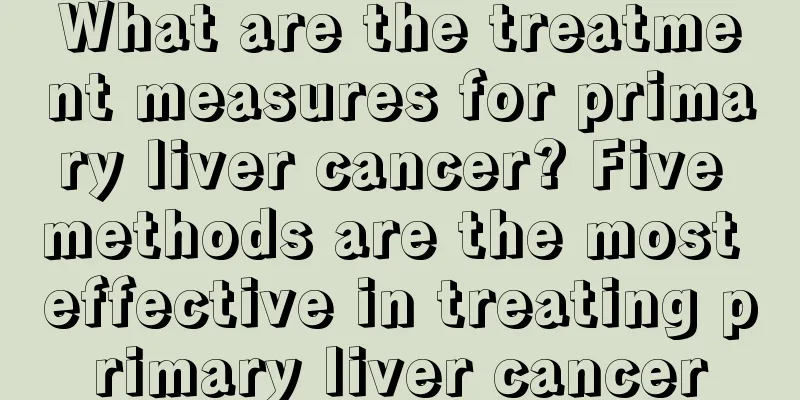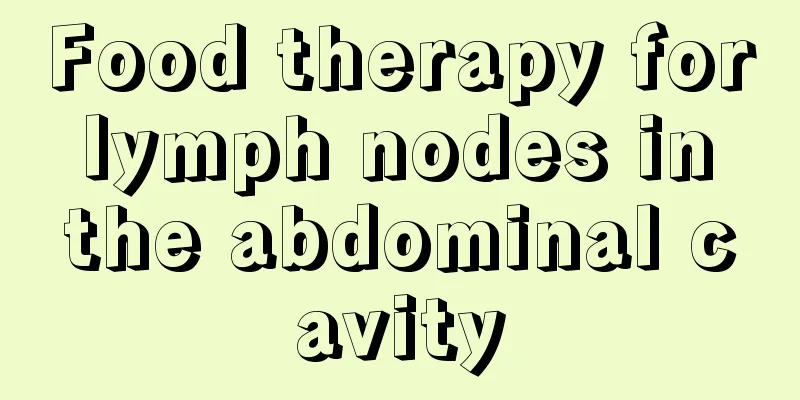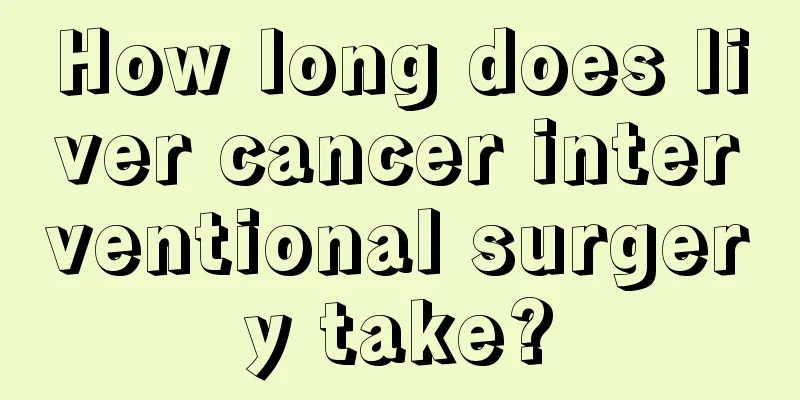What determines whether you get cancer

|
A report from the World Health Organization shows that there are many misunderstandings about cancer among the public, patients, and some medical staff. The Popular Health Network recently conducted a survey and summarized the top ten common misunderstandings about cancer. Myth 1: Cancer is mainly determined by genes A survey conducted by a Taiwan website found that 1/5 of respondents believed that cancer is mainly caused by genetic genes. Expert opinion: In fact, heredity is only one of the factors that cause cancer. Environmental pollution, unhealthy living and eating habits, excessive stress, etc. are all closely related to the occurrence of cancer. Some cancers have a higher genetic risk and require screening. For example, if the mother has breast cancer, the daughter's risk of developing breast cancer is 2 to 3 times that of the general population. However, the genetic risk of some cancers is very small. For example, among colorectal cancer patients, only about 5% is related to genetics. Studies have confirmed that compared with genes, bad habits such as smoking, alcoholism, staying up late, and environmental pollution such as air pollution, chemical and pesticide residues, are more harmful to the body. Myth 2: Cancer is not preventable Many people believe that cancer is difficult to prevent and they don’t know what aspects of life they should pay attention to. Expert opinion: The World Health Organization suggests that 1/3 of malignant tumors are preventable, 1/3 are treatable, and 1/3 are curable. The initiative to prevent cancer lies in everyone's own hands. The American Cancer Research Association points out that the simplest way to prevent cancer is to eat more fruits and vegetables, which can reduce the risk of cancer by 20%. It also recommends that people eat at least 5 servings of fruits and vegetables a day (1 serving is about 85 grams), reduce animal fat intake, maintain a standard weight, exercise for at least 30 minutes a day, and quit smoking and limit alcohol. As long as you stick to the first line of defense of "prevention is better than cure", develop a healthy lifestyle, avoid known cancer risk factors, and add the second line of defense of regular screening, it is not difficult to stay away from cancer. Myth 3: Vegetarians are less likely to get cancer The survey shows that 24% of respondents firmly believe that vegetarians have a lower risk of cancer. Expert opinion: Studies have shown that people who often eat a lot of meat and fish do have a higher risk of cancer, while vegetarians eat fruits and vegetables every day and have adequate dietary fiber intake, so their risk of colorectal cancer is lower than normal people. However, long-term vegetarian diet may cause nutritional imbalance. An Austrian study found that vegetarians may increase their risk of cancer by 2 to 2.5 times that of meat eaters due to their low intake of animal fat. If you want to prevent cancer, it is particularly important to have a balanced diet. You must not be partial or picky about food. Try to eat mainly natural ingredients. Processed foods should be limited to 1 to 2 times a week, and eat 5 servings of fruits and vegetables of different colors every day. Myth 4: Having many moles can lead to skin cancer "People with many moles have a higher risk of cancer." The survey shows that 61% of middle-aged and elderly people believe this view. Expert opinion: Moles can be divided into native moles that are present at birth and moles that are formed later in life due to environmental and physical factors. During puberty and pregnancy, the number of moles may increase, reaching a peak in middle age. Most moles on people's bodies are benign melanocytic moles and there is no need to worry. If a mole shows abnormal changes in color, size, shape, etc., you should pay special attention to it. It may manifest itself in the following characteristics: gradually spreading outward, with a diameter greater than 0.6 cm; peeling, bleeding, secretions, etc.; asymmetrical shape, irregular and blurred edges; color changes from brown to black or dark blue; many small moles grow next to a large mole. Myth 5: Large breasts are more likely to cause breast cancer "Big breasts are more likely to cause breast cancer" is also a misunderstanding of many people, but in fact, this is not scientific. Expert opinion: Large breasts are not a high-risk factor for breast cancer, but family history is. Other risk factors include: early menarche, late menopause, being unmarried, childless, late childbearing, and not breastfeeding. It is often found in the outpatient clinic that most breast cancer patients come to the clinic only because they feel a lump or feel pain when putting on underwear. At this time, the cancer is mostly in stage 2 or above and may require breast removal. If breast cancer is detected and treated early, the cure rate is very high, and the 5-year survival rate for stage 0 to 1 cases is as high as 95%. It is recommended that women over 45 years old should self-examine their breasts every month and have regular physical examinations every year. If there is a family history, the screening age should be advanced to 40 years old. Myth 6: Eating organic food can prevent cancer Buying organic food is a new health trend in recent years. The survey found that 39% of respondents aged 50 to 59 believed that eating organic food can prevent cancer, while among people aged 13 to 19, this proportion is as high as 53%. Expert opinion: Organic food does not use any chemical pesticides, chemical fertilizers, herbicides or other unnatural drugs during the planting or cultivation process, so the food ingredients are safer. Nowadays, most organic foods are vegetables and fruits. A nine-year study by the University of Oxford in the UK showed that women who consume organic food for a long time have no different risk of cancer than women who never eat organic food. To eat healthily, you need to diversify your diet, eat more local and seasonal foods, and eat some nuts every day. Myth 7: Acidic body is prone to cancer "The human body is healthy only when it is weakly alkaline", "People with acidic constitution are particularly prone to cancer"... In recent years, various statements about "acidic and alkaline constitution" have been widely spread and have become a popular concept in some health care product advertisements and health TV programs. Expert opinion: There is no such thing as acidic or alkaline constitution in science, it is pure nonsense. First of all, there are many kinds of fluids in the human body, including intracellular fluid, extracellular fluid (tissue fluid, blood and lymph), various digestive fluids secreted by the digestive system, as well as sweat, urine, etc. These fluids have their own acidity and alkalinity, and the so-called "body fluid" is very vague. Myth 8: There is no cure for advanced cancer Most cancer patients are most afraid of hearing that they are in the late stage and that cancer cells have metastasized from the primary site to the liver, lungs, bones and other parts. The survey found that 46% of respondents aged 50 to 59 believed that there was no cure for advanced cancer. Expert opinion: Even if cancer metastasizes, the severity varies and cannot be generalized. With the advancement of medicine, some cancers can still be cured even if they are discovered in the late stages. For example, the treatment effects of lymphoma and testicular cancer are quite good. With the continuous breakthroughs in targeted therapeutic drugs, even advanced lung cancer, breast cancer, etc. can be better controlled, and survival can be extended by several months or even years. As long as you follow the doctor's advice and receive treatment, there is hope that you can "live with the tumor" for a long time Myth 9: Fasting can kill cancer cells Many cancer patients believe that if they do not allow cancer cells to absorb any nutrients, they can be "starved to death", so they adopt "fasting therapy" to control cancer. The survey shows that 14% of middle-aged respondents agree with this view, while the proportion of people over 60 years old reaches 22%. Expert opinion: Clinically, there have been liver cancer patients who only drank water and ate a small amount of fruits and vegetables in an attempt to "starve" cancer cells to death, but they ended up starving to death. Generally speaking, cancer patients who fast can lose 10 kilograms in a week, which reduces their immunity and makes it easier for cancer cells to survive. Studies have found that sugar is the favorite food of cancer cells. The incidence of colorectal cancer, breast cancer, endometrial cancer and other cancers are all related to the love of eating sugar. A study by Harvard Medical School in the United States found that women who like to eat high-glycemic index foods have a three times higher risk of colorectal cancer than normal people. Refined sugars and processed foods, such as sweet drinks, candies, cakes and other snacks, belong to this category of food, and people are best to eat less of them. Myth 10: Chemotherapy and radiotherapy will definitely cause hair loss The survey shows that 76% of respondents aged 50 to 59 believe that "hair loss will be inevitable after undergoing radiotherapy and chemotherapy." Expert opinion: Chemotherapy drugs work mainly by inhibiting the growth of cancer cells, but they can also “kill both good and bad” and damage normal cells, especially hair follicle cells and germ cells. For example, chemotherapy drugs for breast cancer can easily cause hair loss. However, some chemotherapy drugs for gastrointestinal tumors only work on gastrointestinal mucosal cells, and patients will not experience hair loss. In order to make it easier for cancer patients to psychologically accept the reality of hair loss, it is recommended that they cut their long hair into short or flat hair before chemotherapy. |
<<: 7 tips to deal with dry eyes
>>: Nine foods that help women have comfortable menstruation
Recommend
What are the symptoms of heart-kidney disharmony?
The main symptoms of disharmony between the heart...
You will never get cancer if you sweat like this every day
Why is sweating so important to the body? The fun...
Detailed answer: Can I drink tea if I have stomach discomfort?
In fact, there are many friends who suffer from s...
Neurogenic injury, understand the cause before treatment
Neurogenic injury is an irritating injury to the ...
Is it better to use a tampon or a sanitary napkin?
Nothing is perfect, so tampons and sanitary napki...
What's the matter with heavy breathing
We have all experienced heavy breathing. Especial...
What are the hazards of electric mosquito coils to the human body
In summer, mosquitoes can cause great harm to the...
What is the best way to fight aging
Aging is a natural process that happens to everyo...
Rehabilitation training for femoral neck fracture, traction care is very important
Femoral neck fracture is very common among the el...
What are the dangers of colon cancer
What are the hazards of colon cancer that must be...
How long is the shelf life of bamboo wine
We all know that the longer wine is stored, the m...
What are the symptoms of recurrence of nasopharyngeal carcinoma? What are the symptoms in the late stage?
Are there any symptoms of recurrence of nasophary...
How to remove formaldehyde with drugs
Our newly moved home or new furniture will face a...
It turns out there are 7 types of nursing measures for acute left heart failure
Acute left heart failure is a disease that has be...
How can we better care for nasopharyngeal cancer
Among many cancer diseases, nasopharyngeal cancer...









